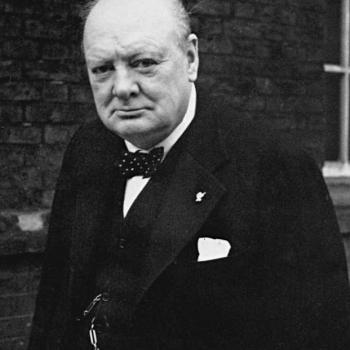 This post is part of General Conference Odyssey
This post is part of General Conference Odyssey
Elder Marvin J. Ashton’s idea of friendship (“What is a Friend”) was more or less common sense in 1972. It would be considered cruel and bigoted today, at least by the elites who seem to get to decide what counts as “bigoted.”
Ashton’s idea includes the lovely Arabian proverb: “A friend is one to whom one may pour out all the contents of one’s heart, chaff and grain together, knowing that the gentlest of hands will take and sift it, keep what is worth keeping, and with the breath of kindness blow the rest away.” But upon this gentle foundation it builds a sterner duty to improve one’s friend (including oneself):
Certainly the word friend is misused if it is identified with a person who contributes to our delinquency, misery, and heartaches. When we make a man feel he is wanted, his whole attitude changes. Our friendship will be recognizable if our actions and attitudes result in improvement and independence.
I bear you my witness that our Lord and Savior, Jesus Christ, is our friend. In his loving processes of command, rebuke, greeting, revelation, encouragement, and long-suffering, he daily proves this. Certainly he is willing to take us the way we are, but he wants to leave us improved in his word and his paths. (my emphasis)
In the now ascendant “love wins” (or “village love-in”) understanding of love, the words “command,” “rebuke,” and I suppose “revelation” would have to be banned from this list of features of friendship. Certainly Elder Ashton’s reference to Winston Churchill’s “courageous” call for “blood, toil, tears and sweat” as an act of the greatest friendship to his country situates him beyond the pale of today’s easy-going and infinitely “tolerant” understanding of “compassion.”
Elder Elray Christiansen (“We Have Made Covenants with the Lord”) reinforces the bond between love and commandment:
Some may wonder why the Lord gives commandments and requires us to enter into covenants with him. Or, as one person asked: “If the Lord loves us, why does he give us commandments? If he loves us, why does he say ‘Thou shalt’ or ‘Thou shalt not’?”
A simple answer to these questions is, he commands us because he loves us. He knows perfectly well what will bring us peace and success in our individual lives and in the world and what will bring the opposite.
The contemporary, tolerantly “compassionate” understanding of love and friendship is a natural corollary of a theology of grace that tends at least to depreciate the importance of obedience to commandments and faithfulness to covenants. Elder Bernard Brockbank (“Entrance into the Kingdom of God”) defends the good-old-fashioned anti-evangelical Mormon position on faith and works. “Today,” he notes,
there is much controversy and contention among the doctrines and philosophies of men relative to the requirements for entrance into the kingdom of God. Many have been deceived by the teachings of men that works and obedience to God’s commandments are not essential, and some base their contention on scriptures. For example, Paul said, “For by grace are ye saved through faith; and that not of yourselves: it is the gift of God: Not of works, lest any man should boast.” (Eph. 2:8–9.)
Brockbank by no means teaches that we simply “earn” our salvation by our own natural powers. Instead, he grounds the possibility of repentance in the “light of Christ”:
The light of life can come only through following Jesus Christ. The light of life is divine light and is required in the immortal soul before entrance back into the kingdom of God. You cannot obtain the divine light of life from men. It does not come from just being good. It can only come through repentance and by living the gospel plan of life and salvation as given by Jesus Christ.
But it remains that the attainment of heavenly glory is inseparable from keeping the commandments:
Wouldn’t you think it is important to know God the Eternal Father and Jesus Christ if you expect to live with them in the kingdom of heaven? Many feel that they know God and know Jesus Christ, but they fail to keep their commandments.
Hear the words of the apostle John to all who claim to know God. He said, “And hereby we do know that we know him, if we keep his commandments. He that saith, I know him, and keepeth not his commandments, is a liar, and the truth is not in him.” (1 John 2:3–4.)
Elder Anderson (“Light and Knowledge to the World”) goes pretty far in associating the progress of science and technology since Joseph Smith’s day with the progress of the light of the gospel: “Since the opening of the heavens, as indicated, man has conquered the darkness of night through the development of the electric light, the incandescent light, the neon light, etc.” The dark side of technological progress, and of naturalistic “enlightenment” more generally, should have been obvious, it seems to me, by this point in the twentieth century. But I grant it is important to be grateful for the bright side.











